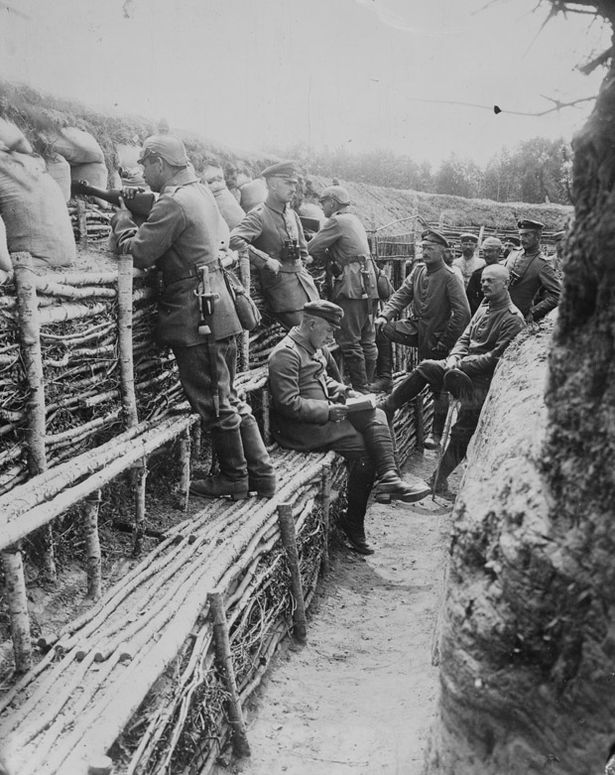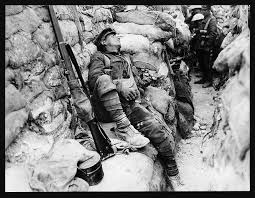Germans Dig in for Long Haul;
In the Trenches: Paneled Walls, Even Carpets;
Ottoman Threat to Kill Allied Hostages.
Special to The Great War Project.
(24-25-26 November) In the central zone of the Eastern Front a century ago, as the battle around what is now the Polish city of Lodz comes to a close, the Russians dig in.
“The Russians were excellent at digging,” writes war historian John Keegan.
The Germans learned to be excellent at digging too, as they come to grips with the full extent of the Russian trenches. “The coming of winter found the central sector of the Eastern Front completely immobilized,” writes Keegan. “It would remain frozen, militarily as well as physically, until the following summer.”
Much the same is the situation on the Western Front. Both fronts are frozen in stalemate, in a war that most political and military leaders believed would last just a few weeks.
The losses on the Eastern Front are just as horrifying as those in the West. The difference is they are less well known and less well documented. According to Keegan, all the combatant armies by this time “lost numbers that would have seemed unimaginable in July 1914.”
“The Russian field army had been reduced from 3.5 million on mobilization to two million, but it had perhaps ten million unconscripted yet to call to the colors.
“Austria-Hungary, by contrast, had lost 1,268,000 out of 3.35 million mobilized but had less than a third as many potential replacements.”
On the Western Front, the trenches the Germans are building leave the impression that they are settling in for a long stay.
Keegan reports that…
“Electric light was appearing in the deeper dugouts,”
…“together with fixed bedsteads, planked floors, paneled walls, even carpets and pictures. Rearward from their underground command posts ran telephone lines to their supporting artillery batteries.”
The French are not so patient. The Germans occupy only ten provincial zones of France, but that covers much of French manufacturing and most of France’s coal and iron ore. “If only to prosecute the war,” Keegan observes, “it was urgent that they be recovered.”
But with winter descending on northern Europe, both asides are concentrating on keeping warm, observes historian Adam Hochschild.
When the wounded British soldiers are taken off the battlefield, many are moved to hospitals in London to be cared for a small army of nurses.
“Banners saying ‘Quiet for the wounded’ hung outside the city’s hospitals,” he reports, “and nearby streets were covered with straw to muffle the sound of horses’ hooves.”
Meanwhile there are ominous developments in Constantinople and elsewhere in the Ottoman Empire.
Turkey enters the war with Russia in early November. The Turks insist they will not create concentration camps for the Russians, French, and British nationals who find themselves in Ottoman lands after the declaration of war.
Then the Turks do just that, reports historian Sean McMeekin. Earlier in November 1914, the Ottoman government announces officially that “all English and French subjects would be held as hostages against a prospective British naval attack on Syria’s coastline,” Syria and its largest city Damascus being part of the Ottoman Empire.
In case “the message was lost on the detainees,” one top Ottoman general announces that “he would have…
‘three English or French’ shot for any Muslim killed in a British naval bombardment of the Syrian coastline.”
Germany’s liaison to the Ottoman army endorses this threat. But more importantly, he is in Constantinople plotting an assault on the Suez Canal.


